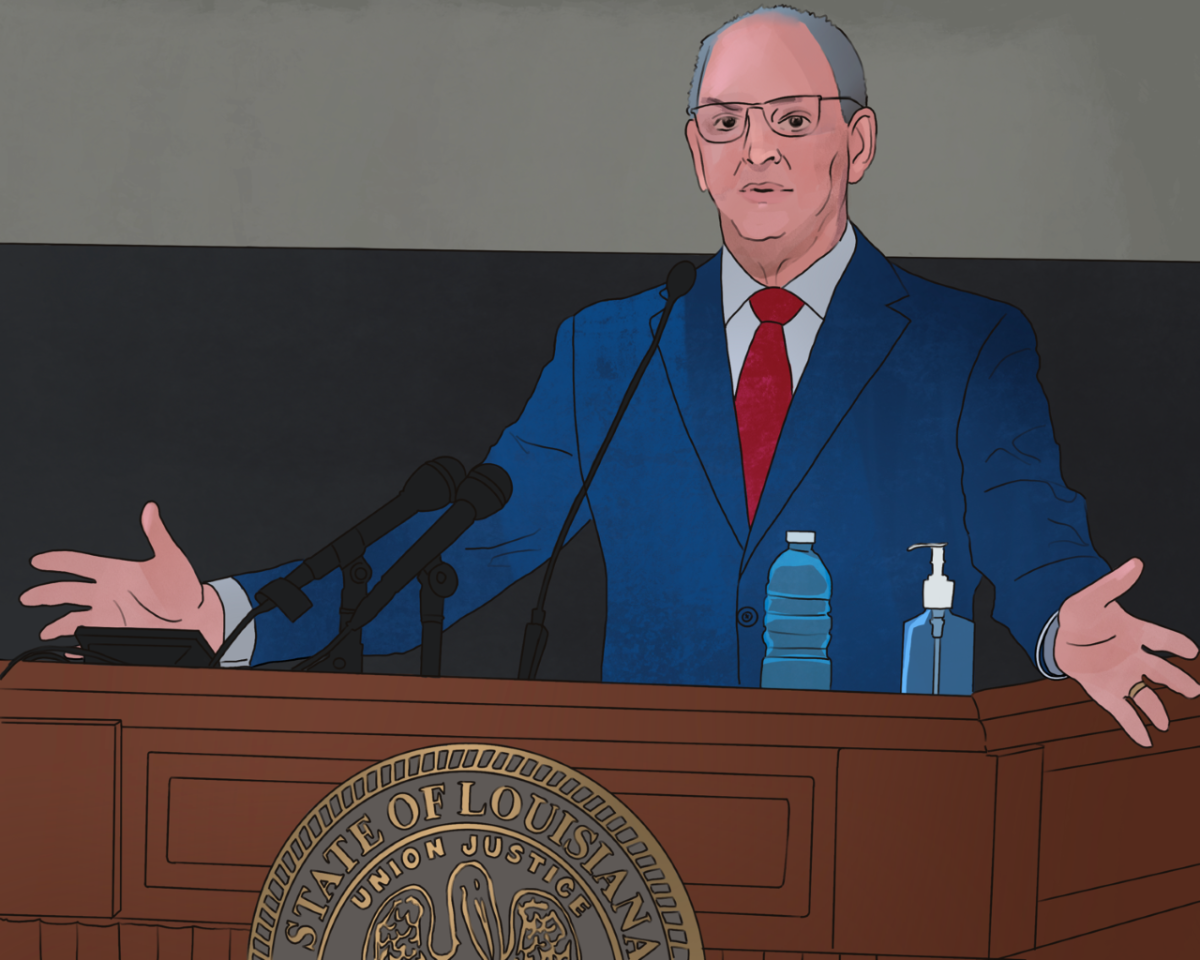Former LSU President, F. King Alexander, sat in front of the Louisiana House Appropriation Committee in 2016, battling an onslaught of university budget cuts.
“If you expect us to compete with Ohio State, fund us appropriately,” Alexander told legislators. “We’ll do more with less. We’ve shown that.”
While presenting to the committee, Alexander riddled the consequences of deep cuts to the state’s flagship university: the loss of 500 faculty positions, including 27 assistant professors, over a decade.
“We have become a poaching ground for many institutions,” Alexander noted.
LSU President, William Tate IV, has echoed Alexander’s sentiment that other universities are keen to take our best and brightest.
“They treat us like we are a farm team,” Tate lamented at his investiture last year. ”This is a flagship!”
Though Tate shares Alexander’s past concerns, he finds himself in a very different position than his predecessor to improve the university.
Every budget for the first four years of Alexander’s presidency included cuts to higher education. Tate, on the other hand, is staring down an executive budget proposal that would increase Louisiana’s higher education spending by over $100 million.
Tate still faces obstacles. The university’s struggles with obtaining funding are not only with the state but also with private donors.
In his first speech to the Baton Rouge Rotary Club—a civic organization that draws business leaders and politicians with deep pockets—Tate emphasized moving past “parallel play.” The term parallel play usually refers to young children playing alongside each other without engaging with one another.
Tate argues the value the university generates for its graduates and the state warrants increased investment into the institution—or, in other words, doing more than parallel play.
The university brought in $166 million in research dollars this last year alone, generating an economic impact of nearly $500 million for the state, Tate told club members. Not only that, but the lifetime earnings of LSU graduates amounts to over $8 billion.
However, Tate warned donors of a grim potential future: an obituary for the university. Cause of death? “A lack of empathy expressed in the form of limited philanthropic support,” Tate said.
This is not contrast to Alexander’s struggle in obtaining public support for the university, which eventually led to the university drafting plans for academic bankruptcy.
Alexander and Tate, to no fault of their own, have both struggled to convince politicians and philanthropists to contribute to the university.
Louisiana must improve investment in higher education, and especially in its flagship.
“Whether you’re talking about poverty or crime, economic development, jobs, healthcare, education cures a lot of ills,” Gov. John Bel Edwards said while previewing his 2022-2023 budget proposal, which includes the highest proposed increase in higher education funding in 14 years.
The legislature must pass the governor’s proposal for historic higher education funding, and private donors must step up to ensure that the university becomes the flagship of flagships we all want it to be.
Charlie Stephens is 21-year-old political communication junior from Baton Rouge.
Opinion: Our flagship cannot survive without adequate investment
January 28, 2022
John Bel Edwards Cartoon





